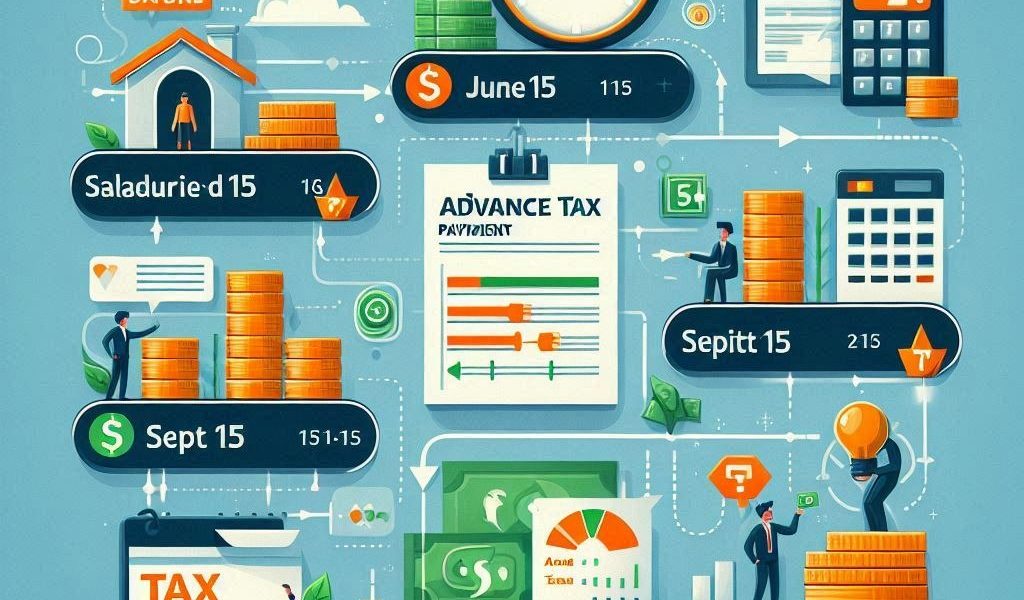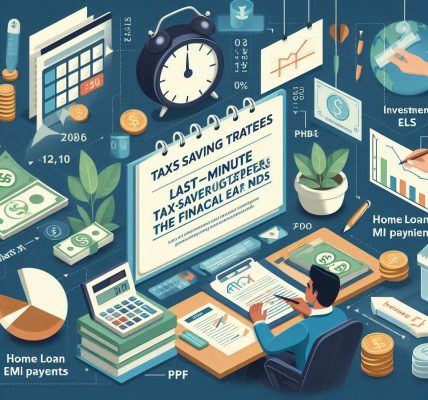Introduction
Advance tax is a critical component of tax compliance for individuals, freelancers, and businesses. If your total tax liability exceeds a certain threshold, you must pay it in advance rather than waiting until the end of the financial year. Failure to do so can result in penalties and interest charges imposed by tax authorities.
This guide will help you understand what advance tax is, who needs to pay it, how to calculate it, and how to avoid penalties with proper planning.
1. What is Advance Tax?
Advance tax, also known as pay-as-you-earn tax, refers to income tax that must be paid in installments throughout the financial year rather than as a lump sum at the year’s end.
It applies to individuals, professionals, freelancers, and businesses whose tax liability exceeds a specified limit.
Why is Advance Tax Required?
- Ensures the government receives tax revenue throughout the year.
- Reduces the burden of paying a large amount at the year-end.
- Helps taxpayers avoid interest penalties for delayed payments.
2. Who Needs to Pay Advance Tax?
You need to pay advance tax if your total tax liability exceeds ₹10,000 (in India) in a financial year after considering TDS (Tax Deducted at Source).
Categories Required to Pay Advance Tax
✔️ Salaried Individuals (if they have additional income sources like capital gains, rent, or business income).
✔️ Freelancers & Self-Employed Professionals (doctors, lawyers, consultants, etc.).
✔️ Business Owners (including proprietors, partnerships, and corporations).
✔️ Investors (who earn capital gains, dividends, or rental income beyond the taxable limit).
✔️ Companies & LLPs (liable for corporate tax).
Who is Exempt from Paying Advance Tax?
❌ Salaried individuals whose employer deducts full TDS.
❌ Senior Citizens (above 60 years) without business income.
❌ Taxpayers whose total tax liability is below ₹10,000 after TDS adjustment.
3. How to Calculate Advance Tax?
To determine the advance tax amount, follow these steps:
Step 1: Estimate Your Total Income for the Financial Year
- Salary (if applicable)
- Freelancing income
- Business profits
- Capital gains (stocks, real estate, etc.)
- Rental income
- Interest from FDs, savings, or other sources
Step 2: Compute Taxable Income
Subtract applicable deductions under sections like 80C, 80D, 24(b), etc. to get the net taxable income.
Step 3: Compute Total Tax Liability
Use applicable income tax slabs to calculate tax liability.
Step 4: Deduct TDS (If Applicable)
If any part of your income already has TDS deducted, subtract it from the total tax liability.
Step 5: Pay the Remaining Tax in Advance
If the remaining tax liability is above ₹10,000, you must pay it as advance tax in installments.
Example Calculation:
- Estimated annual income: ₹12,00,000
- Deductions (80C, 80D): ₹1,50,000
- Net taxable income: ₹10,50,000
- Tax payable: ₹1,17,000 (as per slabs)
- TDS deducted by employer: ₹80,000
- Remaining tax liability: ₹37,000 (liable for advance tax)
4. Advance Tax Payment Schedule & Due Dates
Advance tax must be paid in four installments during the financial year as per the schedule:
| Installment | Due Date | Amount Payable |
|---|---|---|
| 1st Installment | June 15 | 15% of total tax liability |
| 2nd Installment | September 15 | 45% of total tax liability (cumulative) |
| 3rd Installment | December 15 | 75% of total tax liability (cumulative) |
| 4th Installment | March 15 | 100% of total tax liability |
Late payments attract interest under Section 234B and 234C.
5. How to Pay Advance Tax Online?
You can pay advance tax online using these steps:
1️⃣ Visit the official income tax portal of your country (e.g., https://www.incometax.gov.in for India).
2️⃣ Select e-Pay Tax or Advance Tax Payment.
3️⃣ Enter your PAN details, assessment year, and tax amount.
4️⃣ Choose a payment method (Net Banking, Debit Card, UPI).
5️⃣ Complete the payment and save the receipt for records.
6. Penalties for Non-Payment or Late Payment
Failure to pay advance tax can lead to interest penalties under Sections 234B and 234C.
- Section 234B: Interest is charged at 1% per month if advance tax is not paid.
- Section 234C: Interest applies for short payments in installments.
To avoid penalties, ensure timely payments and accurate calculations.
7. Tips to Avoid Advance Tax Penalties
✔ Estimate income correctly and set reminders for due dates.
✔ Maintain proper financial records of earnings and deductions.
✔ Adjust payments based on changes in income throughout the year.
✔ Use online tax calculators for accurate tax estimations.
✔ Consult a tax professional if unsure about tax calculations.
Conclusion
Advance tax helps in managing tax liability efficiently and avoiding last-minute burdens. Understanding who needs to pay, when to pay, and how to calculate advance tax ensures you remain compliant and penalty-free.
Key Takeaways:
✅ Advance tax applies if tax liability exceeds ₹10,000.
✅ Due in four installments (June 15, Sept 15, Dec 15, Mar 15).
✅ Late payments attract interest penalties (Section 234B & 234C).
✅ Use online payment portals for hassle-free payments.
✅ Plan tax-saving investments wisely to reduce liability.




